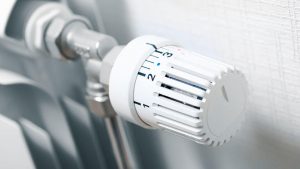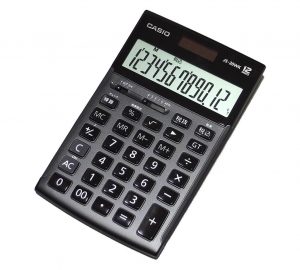If you’re wondering what BTU is, you might know that it stands for British Thermal Unit. However, that might not tell you what the term means. If you’d like to learn what it really is and why it matters, then keep reading into the following paragraphs for an introduction to the concept.
You’re most likely to encounter the letters of BTU when you look through a store’s collection of things like heated towel rails, radiators or vertical radiators. A radiator will have a BTU rate which is a simple and fast way of telling you just how much heat that radiator is going to emit. It’s really just there to help you figure out if a certain radiator is the proper size for a particular room or not.
It’s crucial to know the specific amount of heat every room in your home requires for your system to operate efficiently. This is how you make sure your space isn’t too cold or too warm.
When you shop for a radiator, factors like finish, design, and style are all important things to consider. Having said that, the one central facet that is more important than anything else is the BTU output of a radiator. Getting this wrong can seriously risk wasting the money you work so hard for.
Contents
Key Takeaways
- BTU, or British Thermal Unit, is a measurement representing the energy needed to heat 1 pound of water by 1 degree Fahrenheit and is crucial for determining the heat output of radiators.
- Choosing the correct BTU output for a radiator is essential to ensure a room is neither too cold nor too warm, and getting it wrong can result in inefficiencies and discomfort.
- Calculating the required BTU for a room involves measuring the room’s dimensions, counting windows, considering the number of radiators, and understanding the surrounding environment, with online calculators available to assist.
What Is BTU, Or The British Thermal Unit?
Okay, it’s time for hard science. A BTU is technically a measurement that represents how much energy it would take to heat up 1 pound of water, which is about 1 pint in volume, by 1 degree on the Fahrenheit scale.
This measurement is most commonly used in the United Kingdom. However, it is often used in many other parts of the world. It is frequently associated with air conditioning, power, energy, and steam generation. BTUs are standard heat measurements in terms of picking a radiator, so you’ll usually see it prominently featured with the product specifications of any reputable unit.
Assuming that you are in the market for a new radiator means that you need to put the time in to calculate the proper number of BTUs which you need. This is essential to making a good purchase, if not even a great one.
An excess of BTU means you’ll by paying for more heat than you need, and the radiator might even get too warm to work right. A deficit in BTU output means your room will rarely meet the temperatures you need to be comfortable or even safe. Your room will stay cold and be an uninviting space no one wants to be in.
If you want to enjoy all the benefit that a radiator, as well as your home’s central heating system, can provide you, then it’s essential that you pick a radiator which has sufficient heat output to serve the space you need to put it in. You shouldn’t get a tiny single-panel convector radiator in your open-concept dayroom anymore than you would use a big triple-columned radiator for a coat closet.

Calculating BTU
Don’t worry about the calculations if you’re not good at maths. Figuring it all out just means that you know how to use a tape measure, be able to count your windows, and figure out what’s on the opposite side of some walls. It’s rather simply actually, particularly if you use an online calculator.
These calculators are typically easy to use, but also free to use. The really good ones will even ask you critical details like how many radiators a room currently has and whether the windows happen to be single- versus double-glazed.
Start things off with measuring your room. You need to know the specific dimensions in terms of square metre area of any room that you want to heat up.
You also have to count how many windows the room has in that specific space. Draughts contribute to your finalised BTU number.
Then, count how many radiators you need. Will you need only one? Or will two, three, or more maximise your central heating?
Also, figure out what is both above and below your room. These play huge roles in the finalised BTU number too, since a solid floor will retain heat quite differently from floors that are above cellars or a cavity.
Along the same vein, find out what is on the opposite side of every wall in the room. Walls leading to other rooms will convey heat or retain it differently than an external wall, although the composition of each wall also has to be factored in.
Now that you’ve read all of this, you should no longer be wondering what a BTU or British Thermal Unit is. You now understand what it means, why it’s important, and how to handle it when shopping for specific parts for your home.

Case Study: Optimising Heating Efficiency with Accurate BTU Calculations
Background
Heat Pump Source was contacted by a homeowner experiencing inconsistent heating across their Victorian-era property. The existing heating system, a mix of old and new radiators, was inadequate, resulting in some rooms being excessively warm while others remained cold. The client sought an upgrade to achieve consistent heating and improved energy efficiency throughout the home.
Project Overview
The project’s primary objective was to recalibrate the heating system by accurately determining the BTU requirements for each room. This required a comprehensive assessment of the property’s layout, insulation quality, and the condition of existing radiators. The aim was to install appropriately sized radiators to ensure uniform heat distribution and optimal energy usage.
Implementation
Assessment and Design
- Room-by-Room Analysis: We measured each room’s dimensions, including ceiling height, to calculate the volume and required BTU for adequate heating.
- Insulation and Windows Evaluation: The number and type of windows, especially single vs. double glazing, were considered. External wall composition was also assessed to determine heat loss factors.
BTU Calculation and Radiator Selection
- BTU Calculation: Using our findings, we calculated the precise BTU requirements for each room, taking into account factors like room use, number of occupants, and potential heat loss through windows and walls.
- Radiator Selection: Based on the BTU calculations, we selected modern radiators with appropriate heat outputs, ensuring they met both the aesthetic and functional needs of the home.
Installation and Balancing
- System Upgrade: The outdated radiators were replaced with new, energy-efficient models matched to the calculated BTU needs.
- System Balancing: We fine-tuned the heating system to ensure even distribution of warmth throughout the property, installing thermostatic radiator valves (TRVs) for individual room control.
Results
- Consistent Heating: The new system provided even heating across all rooms, eliminating previous cold spots and over-heated areas.
- Energy Savings: Correctly sized radiators reduced energy consumption, resulting in noticeable savings on heating bills.
- Client Satisfaction: The client was pleased with the improved comfort and energy efficiency, as well as the seamless installation process that respected the property’s period features.
Summary
This project highlights the importance of accurate BTU calculations in designing an efficient and comfortable heating system. By thoroughly assessing the home’s needs and selecting radiators based on precise BTU measurements, Heat Pump Source was able to optimise the heating system, ensuring both comfort and energy efficiency. Our approach underscores our commitment to delivering tailored, high-quality HVAC solutions that meet the unique needs of each property, enhancing both the living experience and energy performance.
Expert Insights About Understanding BTU
The British Thermal Unit (BTU) is a critical measure in the HVAC industry, defining the heat output required to maintain comfortable temperatures in various spaces. It’s essential for selecting the right radiator size and type, ensuring optimal energy efficiency and comfort.
Technical Director
Misjudging the required BTU can lead to significant inefficiencies. An oversized radiator might waste energy, while an undersized one can leave a room inadequately heated. Accurately calculating BTU needs helps in achieving both comfort and cost-effectiveness.
Senior HVAC Engineer
The importance of BTU extends beyond residential heating. It plays a vital role in industrial applications, power generation, and air conditioning systems, making it a universal standard in energy calculations.
Chief Energy Consultant
Heat Pump Source: Reliable Heating and Cooling Solutions
At Heat Pump Source, we take pride in our unwavering commitment to serving the UK with top-tier HVAC solutions. From the efficiency of heat pumps and the cool relief of air conditioning to the warmth of boilers, radiators, and underfloor heating, our dedicated team is always at the forefront of innovation. We understand the unique needs of every household and business, and we strive to provide dependable health and cooling products and services that are tailored just for you. Ensuring your comfort and satisfaction is our utmost priority. Whether you have questions, need guidance, or require support, we’re always here to assist. Please don’t hesitate to contact us; we’re eager to be of service.
Conclusion
The British Thermal Unit (BTU) is a pivotal measurement in determining the heat output of radiators, ensuring that homes maintain the desired temperature for comfort and efficiency. As homeowners invest in central heating systems, understanding the BTU is crucial to avoid overspending on excessive heat or facing the discomfort of insufficient warmth. While the aesthetic aspects of a radiator are important, its BTU output is paramount. Fortunately, with online calculators and a basic understanding of room dimensions and features, anyone can accurately determine the required BTU for their space. As with choosing a central heating engineer, making informed decisions based on knowledge and research ensures optimal home comfort and efficient energy use.
About the Author
At Heat Pump Source, our articles are the product of a collaborative effort among a team of highly skilled HVAC experts. Our dedicated professionals, hailing from diverse backgrounds in heating, ventilation, air conditioning, and refrigeration, contribute their extensive knowledge and experience to every piece of content. This multidisciplinary approach ensures comprehensive coverage. Our commitment is to deliver authoritative, reliable, and tailored advice to meet the unique needs of every household and business across the UK.

